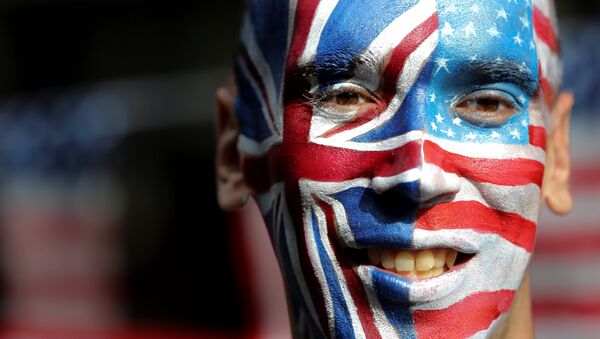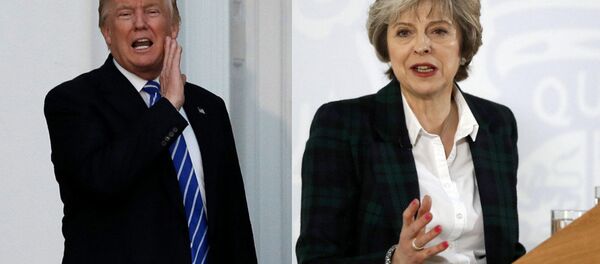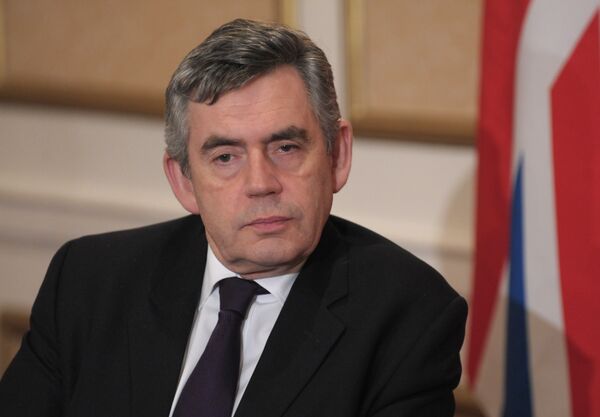The US President tweeted that he was looking forward to meeting the UK PM and to rebuilding the "special relationship" the two sides once had.
The term "special relationship" is used to describe the age-old dance between UK prime ministers and the US presidents.
I look very much forward to meeting Prime Minister Theresa May in Washington in the Spring. Britain, a longtime U.S. ally, is very special!
— Donald J. Trump (@realDonaldTrump) 8 January 2017
It was a term that was coined by former UK PM Winston Churchill during a tour of the US after the Second World War. However, it is an affinity that has been publicly reaffirmed by both sides.
Donald Trump recently referred to Theresa May as "my Maggie," drawing on similarities, of course, between former US President Ronald Reagan and UK Prime Minsiter Margaret Thatcher.
However, according to Dr. James D. Boys, a political historian with a focus on the United States, the "special relationship" between the two sides is not defined by any particular president or prime minister, but rather by the similarities that exist between the two sides.
"The US military and its institution as a whole are very similar to the UK and it is for that reason why the two countries have a 'special relationship.' Yes it is important that the leaders of these countries are united, but that is not the focus of the 'special relationship,' " Dr. Boys told Sputnik.
.@Theresa_May & @POTUS meeting today to discuss #SpecialRelationship and Free Trade Deal — a great moment for #GlobalBritain
— Change Britain (@Change_Britain) 27 January 2017
Reagan and Thatcher
Thatcher, a Conservative and Reagan, a Republican, shared a populist view.
Both were against big government, globalization and resisted "Communist aggression," even if Thatcher played the role of the "good cop" versus Reagan's "bad cop" when it came to the Soviet Union.
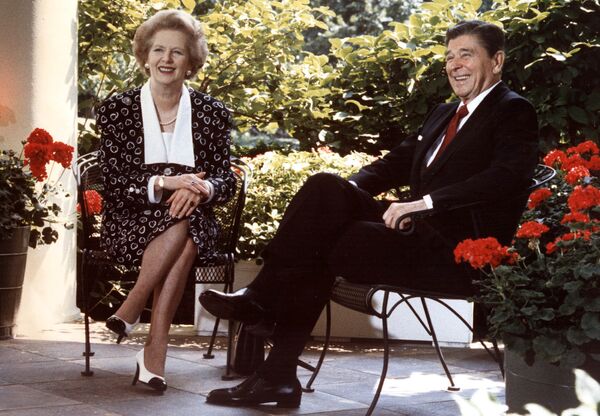
"Your problems will be as our problems, and when you look for friends we shall be there," Margaret Thatcher said to her long-term friend Ronald Reagan.
The former US Republican president even interrupted a meeting in the White House, so he could take a call from "Maggie," saying: "Isn't she wonderful" to his staff.
Blair and Clinton
The 1990s saw the arrival of New Labour's frontman Tony Blair in the UK and Bill Clinton of the Democrats in the US.
Both men studied at Oxford University; however it was Clinton's Democrat party that had a huge influence on Tony Blair's political stance.
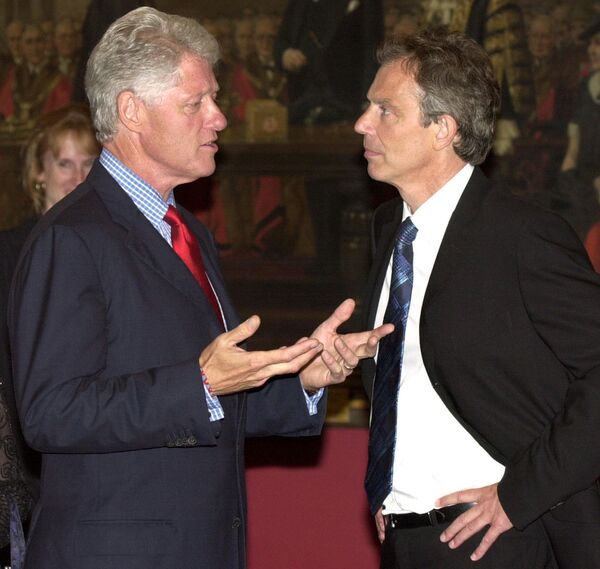
Sidney Blumenthal, a former assistant and senior adviser to Clinton, introduced him to Blair before he became prime minister.
"It was probably the closest relationship of an American president and a British prime minister devoted to a common purpose, even more so than FDR and Churchill," Blumenthal said.
When the BBC obtained records of redacted transcripts of phone calls from 1997-2000, made between the two leaders, as Clinton was standing down, the extent of the "special relationship" became even more evident — Blair called his US counterpart "mate" and Clinton referred to his British friend as "bud."
Bush and Blair
After the Clinton era ended, George W. Bush from the Republican Party took over.
George Bush invited Tony Blair to join him at his presidential retreat of Camp David in Maryland. The relationship blossomed and became one of the strongest UK-US friendships history had ever seen.
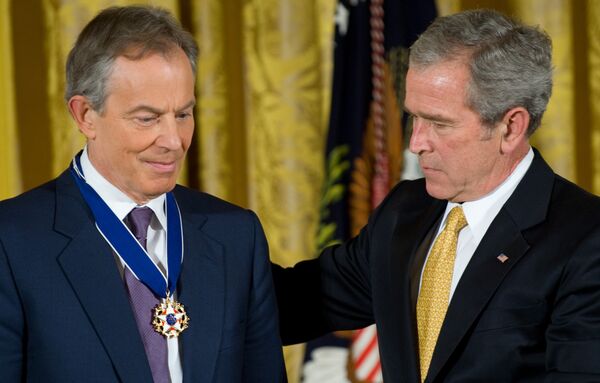
This "special relationship" however, was overshadowed by the 2001 joint invasion of Iraq, when Blair was labeled as "Bush's poodle."
The disastrous military invasion and years of civilian deaths, as well as subsequent collapse of the Iraqi state, is what the Blair-Bush relationship has become synonymous with — a "bloody" stain on their legacies which they also have in common.
Brown, Cameron and Obama
2009 was the start of a "special relationship" between Gordon Brown, UK Labour, and Barack Obama, Democrat, and first ever black president of the United States. Obama rode in on a wave of hope and inspiration, a promise to "bring back our troops" from Iraq.
However, Obama's relationship with Brown signaled a different kind of "special" — a relationship which marked a growing divide between both countries.
According to various sources, Brown found it difficult to meet with Barack, who turned down five requests from Downing Street to hold a United Nations bilateral meeting at the G20 summit in 2009.
Brown and Obama had also not seen eye to eye over the UK PM's handling of the Scottish government's decision to release the Lockerbie bomber, convicted of the terror attack.
By then, Brown has considered Obama to be a "lightweight," as mentioned in the memoirs of Damian McBride, former special adviser to the UK PM, and tensions between both started escalating.
Obama removed the bust of Churchill from the Oval Office — on loan as a personal gift from Blair to Bush in 2001 — and which could be seen as evidence of the president distancing himself from the prime minister.
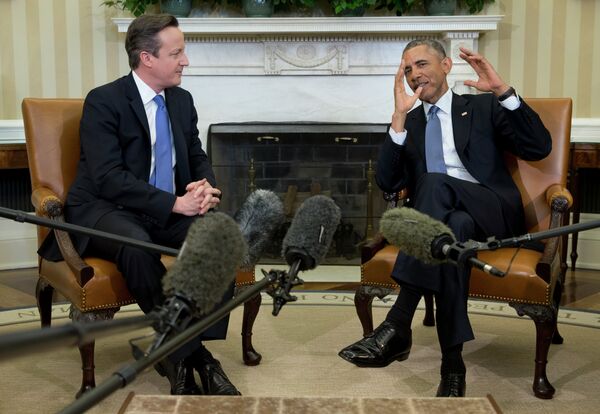
Enter David Cameron in 2010, a UK PM who lead a Conservative and Liberal Democrat coalition government, and a new wave of "special" seemed to be on the card, as he tried to forge a strong relationship with Barack Obama.
However, it appears Gordon Brown had set the precedent and the relationship continued sliding downhill, as Cameron failed to solidify the ties that were previously seen between Blair-Clinton or Thatcher and Reagan.
Obama's relationship with the German Chancellor Angela Merkel for example, was far stronger than that with the UK PM. When Obama left the White House in January 2017, it was Merkel who received his final phone call.

Dr. Boys believes that the relationship between Bush and Blair had an impact on how Obama related to foreign leaders.
"The poisoned relationship between Bush and Blair no doubt played a crucial factor in how Obama related to UK prime ministers. He knew Gordon Brown would not be around for long, so he did not forge a relationship there. However, Obama didn't really have a strong relationship with any foreign leader and I think that was more down to his personality," Dr. Boys told Sputnik.
May and Trump
Now we see the May and Trump union, or reunion, as the two sides have expressed confidence in working together to rebuild the "special relationship."
With May being the first foreign leader to meet the president since his inauguration, it seems that the UK PM is eager to set the scene for future relations between the US and UK, especially when it comes to trade, once Brexit has been finalized.
"The meeting between the UK and the US is symbolic. The fact that May is the first leader to visit Trump and that the US president has also reinstated the Winston Churchill bust means that the relationship between the two sides will once again thrive and endure," Dr. Boys said.

